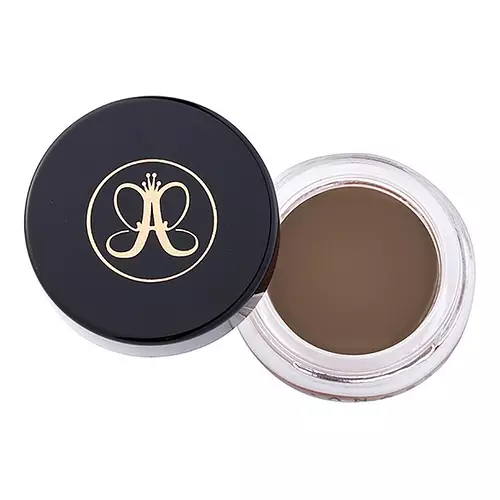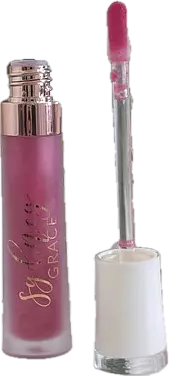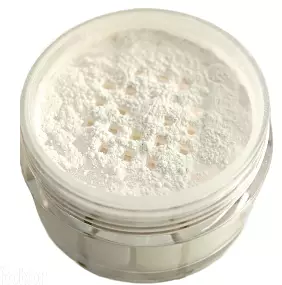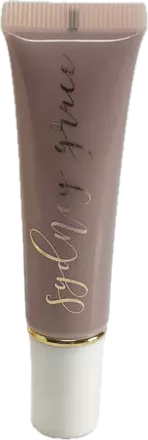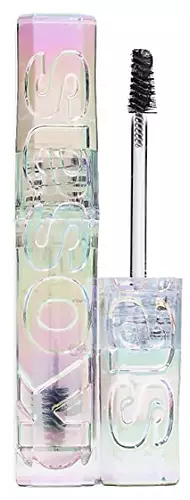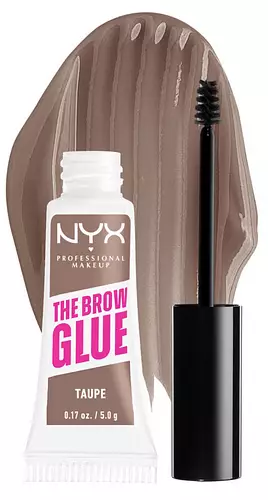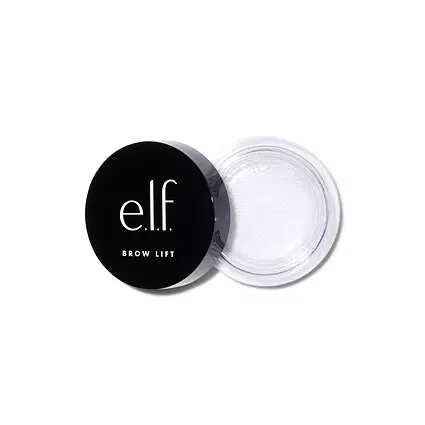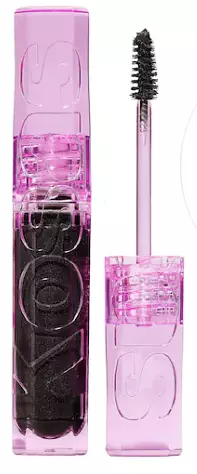
Sydney Grace Eyebrow Pomade Ingredients Explained
Updated on April 24, 2024 Submitted by screamadelica
Overview
What it is
Eyebrow with 14 ingredients that contains exfoliants
Cool Features
It is cruelty-free
Free From
It doesn't contain any harsh alcohols, common allergens, fragrances, oils or parabens
Fun facts
Sydney Grace is from United States.
We independently verify ingredients and our claims are backed by peer-reviewed research. Does this product need an update? Let us know.
Eyebrow with 14 ingredients that contains exfoliants
Quick info
You should know
Notable Ingredients
This product contains 2 ingredients that may have this attribute:
Concerns
This product contains 1 ingredient that may have this attribute:
This product contains 1 ingredient that may have this attribute:
This product contains 1 ingredient that may have this attribute:
Ingredients 14
Cyclopentasiloxane is a silicone used to improve texture and trap moisture. An easier name for this is D5.
This silicone is an emollient. Emollients create a thin film on the skin to prevent moisture from escaping.
Synthetic Wax is created from fossil fuels such as natural gas. It is used to enhance texture, adjust pH, and as an occlusive.
This silica is mainly used to thicken oils and suspend particles in oils. It is not water soluble.
Silica is a mineral naturally found in our skin. It helps to thicken and smooth the texture of a product. It also acts as an agent for other ingredients by increasing the absorption of other ingredients into the skin.
Phenoxyethanol is a preservative that has germicide, antimicrobial, and aromatic properties. Studies show that phenoxyethanol can prevent germ and microbial growth. By itself, it has a scent that is similar to that of a rose.
Caprylyl Glycol is a humectant and emollient, meaning it attracts and preserves moisture.
Potassium Sorbate is a preservative used to prevent yeast and mold in products. It is commonly found in both cosmetic and food products.
Titanium dioxide is known for its UVA and UVB protection properties. It is non-comedogenic and non-irritating. Titanium Dioxide is a physical sunscreen. Physical sunscreens reflect light and prevent it from reaching your skin.
Ci 77492 is also hydrated iron III oxide. It's sole purpose is to give a yellow hue to products.
Ingredient Ratings
Based on the number of likes and dislikes each ingredient has received.
Ingredients Explained
Isododecane is a fragrance, emollient, and solvent.
As an emollient, it helps your skin stay soft and hydrated. Emollients help trap moisture into your skin.
Isododecane's role as a solvent makes it a great texture enhancer. It spreads smoothly on skin and does not leave a sticky feeling behind. Isododecane also helps prevent color transfer in makeup products.
Isododecane is not absorbed into skin.
Learn more about IsododecaneCyclopentasiloxane is a silicone used to improve texture and trap moisture. An easier name for this is D5.
D5 is considered lightweight and volatile. Volatile means it evaporates quickly after application. Once evaporated, D5 leaves a thin barrier that helps keep skin hydrated.
D5 is an emollient. Emollients help soften the skin and prevent water loss. Silicones create a silky texture in products. D5 helps other ingredients become more spreadable.
Studies show D5 is safe to use in skincare products. We recommend speaking with a skincare professional if you have concerns.
Learn more about CyclopentasiloxaneThis silicone is an emollient. Emollients create a thin film on the skin to prevent moisture from escaping.
It is not soluble in water and helps increase water-resistance in products.
According to a manufacturer, it can blend seamlessly with silicone oils, such as Cyclopentasiloxane.
Learn more about TrimethylsiloxysilicatePolypropylsilsesquioxane is a type of silicone.
Synthetic Wax is created from fossil fuels such as natural gas. It is used to enhance texture, adjust pH, and as an occlusive.
It may also be used as an abrasive ingredient to exfoliate the skin.
Synthetic Wax may not be fungal acne safe.
Learn more about Synthetic WaxThis silica is mainly used to thicken oils and suspend particles in oils. It is not water soluble.
According to the manufacturer, it:
The manufacturer also claims this ingredient to be useful in makeup.
In lipstick formulations, this ingredient improves color payoff, reduces pigment settling, and reduces oil bleeding. This ingredient also improves the grip of powder products such as dry shampoos.
Learn more about Silica Dimethyl SilylateSilica is a mineral naturally found in our skin. It helps to thicken and smooth the texture of a product. It also acts as an agent for other ingredients by increasing the absorption of other ingredients into the skin.
Silica is often used for absorption and can help reduce shine when products are applied. Silica occurs in naturally in materials like clay and sandstone, and it can also be produced synthetically.
Silica is present naturally within the skin during collagen production and when reducing inflammation.
Learn more about SilicaPhenoxyethanol is a preservative that has germicide, antimicrobial, and aromatic properties. Studies show that phenoxyethanol can prevent germ and microbial growth. By itself, it has a scent that is similar to that of a rose.
It's often used in formulations along with Caprylyl Glycol to preserve the shelf life of products.
Caprylyl Glycol is a humectant and emollient, meaning it attracts and preserves moisture.
It is a common ingredient in many products, especially those designed to hydrate skin. The primary benefits are retaining moisture, skin softening, and promoting a healthy skin barrier.
Though Caprylyl Glycol is an alcohol derived from fatty acids, it is not the kind that can dry out skin.
This ingredient is also used as a preservative to extend the life of products. It has slight antimicrobial properties.
Learn more about Caprylyl GlycolPotassium Sorbate is a preservative used to prevent yeast and mold in products. It is commonly found in both cosmetic and food products.
Potassium sorbate is potassium salt derived from sorbic acid. Sorbic acid is a natural antibiotic and effective against fungus.
Potassium sorbate and sorbic acid can be found in baked goods, cheeses, dried meats, dried fruit, ice cream, pickles, wine, yogurt, and more.
Potassium sorbate is often used with stronger preservatives.
Learn more about Potassium SorbatePotassium Glycol Sulfate is a type of sulfate.
Titanium dioxide is known for its UVA and UVB protection properties. It is non-comedogenic and non-irritating. Titanium Dioxide is a physical sunscreen. Physical sunscreens reflect light and prevent it from reaching your skin.
Protecting your skin against UV radiation can prevent the signs of aging. Sun damage is associated with fine-lines, wrinkles, loss of firmness, and hyperpigmentation. Titanium dioxide can help prevent premature aging.
With modern production, nano-scale or fine-grade titanium dioxide can be easily produced for cosmetics. In sunscreen, titanium dioxide absorbs UV light. Our skin is not able to absorb Titanium dioxide, even nanoparticles.
Titanium itself is the 9th most common element in the Earth's crust. Titanium dioxide is formed when oxygen is introduced and can be found in ores, dust, sand, and soil.
Pure titanium dioxide is a white powder that is used in many products to add or change color.
Learn more about Titanium DioxideCi 77492 is also hydrated iron III oxide. It's sole purpose is to give a yellow hue to products.
Iron III oxides are classified as inorganic chemicals for coloring.
Synthetically created Ci 77492 is considered safer than those naturally found. This is because the synthetically created version may contain less impurities. Iron oxides are generally non-toxic and non-allergenic.
Learn more about CI 77492Ci 77288 is used to add green pigment to products.
Compared With
Here are some products that it's often compared with
More Sydney Grace Products
See all Sydney Grace productsMore Eyebrows
See all eyebrowsWe're dedicated to providing you with the most up-to-date and science-backed ingredient info out there.
The data we've presented on this page has been verified by a member of the SkinSort Team.
Read more about us


